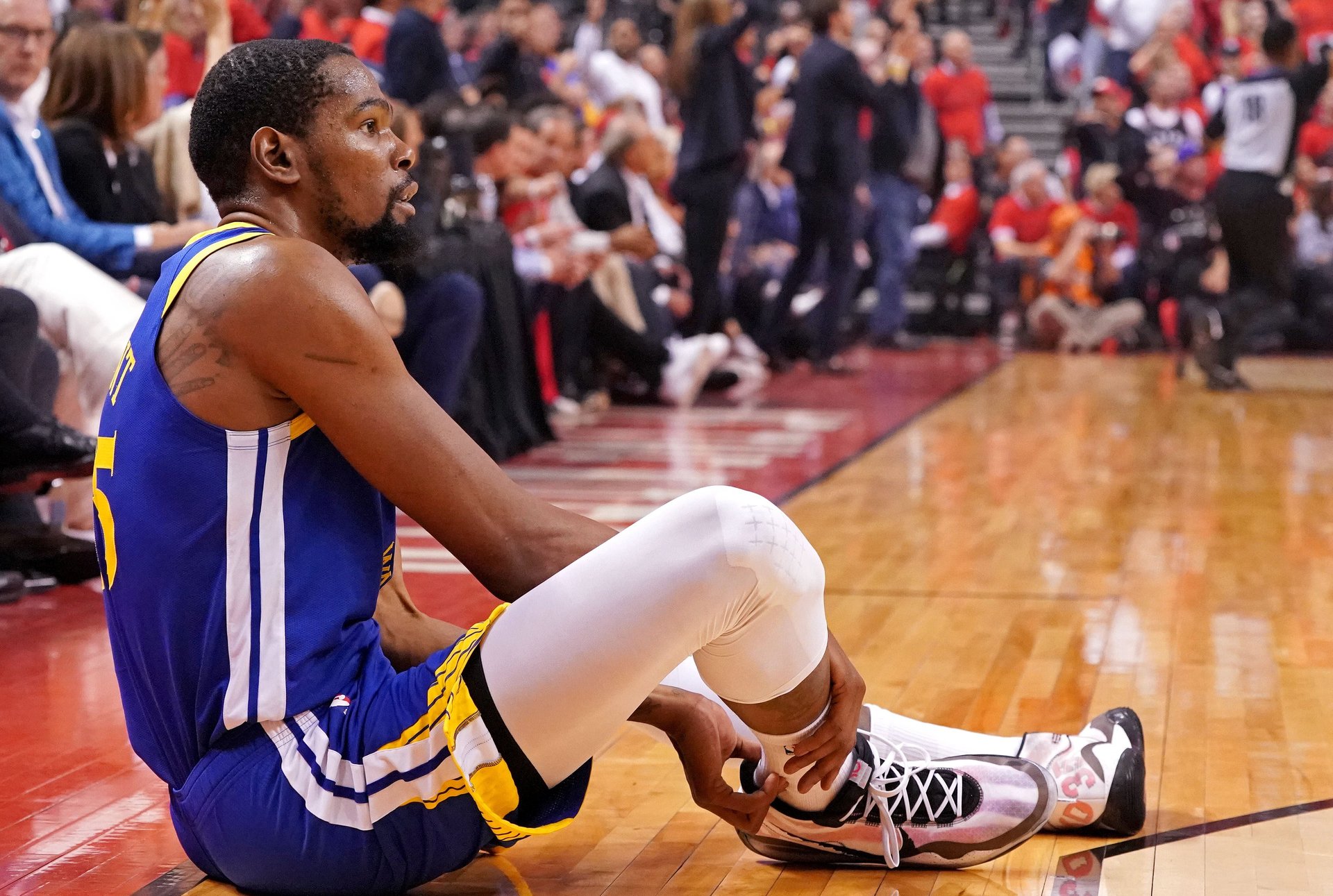Social media deserves blame for Kevin Durant’s injury
After rushing back from injury to help his team stave off elimination, Golden State Warriors forward Kevin Durant suffered a torn Achilles tendon in game five of this year’s NBA finals. Though the Warriors eked out a victory that night (June 10), they ultimately lost the series, with the Toronto Raptors claiming the championship in six games. By returning to the lineup, Durant demonstrated a willingness to put the team ahead of himself—but now he’s at risk of missing the entire 2019-2020 season.


After rushing back from injury to help his team stave off elimination, Golden State Warriors forward Kevin Durant suffered a torn Achilles tendon in game five of this year’s NBA finals. Though the Warriors eked out a victory that night (June 10), they ultimately lost the series, with the Toronto Raptors claiming the championship in six games. By returning to the lineup, Durant demonstrated a willingness to put the team ahead of himself—but now he’s at risk of missing the entire 2019-2020 season.
It’s hard to say what went through his mind and only the Warriors know whether Durant’s return was medically sensible. However, unlike his teammates—who also persevered through injury—the seven-foot superstar was probably pushed to prove himself, at least in part, because of online criticism.
Questions about the extent of Durant’s initial injury and his desire to play could have pressed him into a bad decision. For instance, The Athletic openly wondered whether Durant was fighting as hard as his colleagues, asking, “If Thompson or Looney or Curry or Green or Andre Iguodala had this [calf] injury 30 days ago, would the Warriors still be waiting for them?” Indeed, this reflects the machismo so often associated with sports. Just rub some dirt on it, and man up. The sentiment was echoed by fans.
To a certain degree, Golden State’s vagueness about Durant’s status heightened the drama.
In an interview with Good Morning America after Durant’s injury, his mom Wanda teared up while discussing online critics who questioned her son’s character and integrity. “[Over] the last few years, there has been a lot of question about who he is as a person—his heart for people, his love for his teammates, his love for the game,” she said. “It was really painstaking, but because my son is an adult and the NBA is his employer, I chose not to respond.”
Of course, nobody can pin Kevin Durant’s decision to play (and the team’s approval) on an article or a chorus of basketball provocateurs, but Durant has been bothered by online opprobrium before. For example, in 2017, one year after leaving the Oklahoma City Thunder, he defended his decision on social media, and got caught using anonymous accounts on Twitter to do so.
Durant cares deeply about his reputation, and there’s no doubt he’ll be lauded for his game 5 heroics. (His 11 points were critical in Golden State’s one-point victory.) But his sacrifice shows the ugliness of hyper-masculinity and social media. Both create expectations that can imperil a person’s wellbeing.
Durant’s approach to modern stardom, however, contrasts sharply with that of Kawhi Leonard, Toronto’s star, who doesn’t use social media at all. When Leonard’s unusual laugh went viral last year, he was entirely unperturbed. “Let everybody have fun with it. It doesn’t bother me at all,” he told ESPN. “That’s who I am.” At Toronto’s championship rally on Monday, Leonard even poked fun at his own laugh, showing that he’s able to shrug off scrutiny.
Durant’s concern and Leonard’s detachment both border on the extreme, but they show how much the digital world does—and doesn’t—matter. Haters gonna hate, but remember, you don’t have to listen.